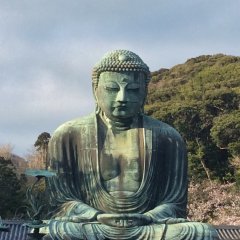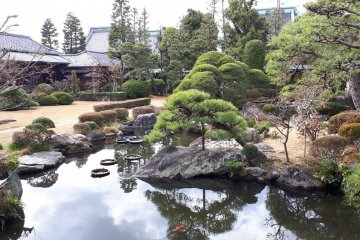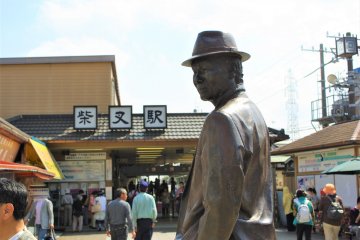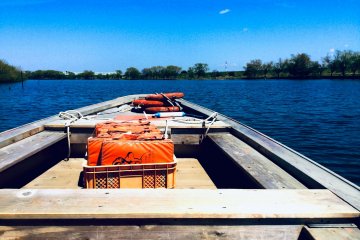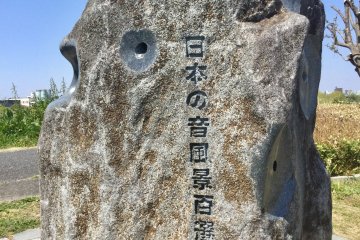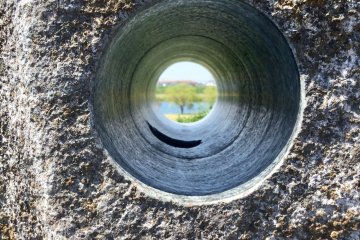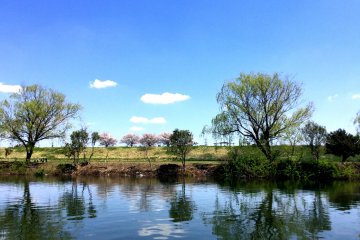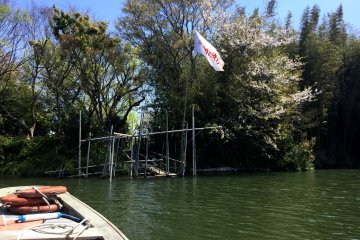Tokyo is renowned for its fast and punctual train systems. If you are brave and have time, riding the buses is a great way to get around dense parts of the city. The extensive road and bridge crossings are convenient and relatively safe to walk on. But there is one antiquated mode of transport in the big city that won’t get you anywhere fast except back in time – the Yagiri ferry crossing.
The Yagiri crossing was instituted during the shogunate to serve the farmers who came from what was then the outskirts of the capital, now Katsushika Ward, to work the fields on the eastern side of the Edo River. Today, the ferry lands at the dock in the Yagiri area of Matsudo City in Chiba Prefecture.
Rides on the wooden hulled ferry, cost Y200 yen for adults, and Y100 for children. The ferry doesn’t run when the weather is stormy, and there is no schedule. The boatman simply waits for passengers to gather, and pushes off when he is satisfied with the number of passengers.
The crossing no longer carries farmers, and is now a living heritage and a pleasant side excursion from Shibamata. You may wonder what draws visitors to this little boat. Yagiri no Watashi was immortalized in an enka song of the same name. It also appears as a setting for a couple’s elopement in the novel Nogiku no Haka, Grave of the Wild Chrysanthemum, by Itoh Sachiro.
But there is another charming reason for the preservation of this little ferry. Yagiri crossing is distinctive for the waves of the river slapping the sides of the boat, the breeze blowing the river grass, and the birds flying above. In 1996, the ministry of tourism began a program to designate and protect soundscapes throughout the country, preserving this last vestige of non-motorized transport on the Edo River.
You can combine a ride on the Yagiri ferry with a visit to Shibamata Taishakuten, Yoshida Tei tea house, and the Torasan Museum on the Katsushika side. Note that on the Matsudo side of the river, there is a monument indicating the site’s literary and cultural significance, a little shop that sells snacks and drinks, but little else. Visitors can catch a bus into central Matsudo, which has great architectural heritage and delicious ramen shops.


